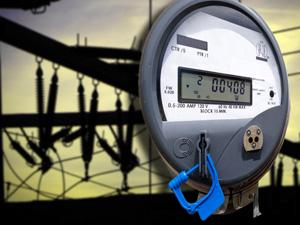
Following the recent announcement that load-shedding schedules are likely to take effect across SA this winter, Vodacom Business has advocated the use of smart mobile technology to mitigate energy capacity and consumption concerns.
Vodacom's business arm says smart metering - a system that enables the gathering of data for remote reporting - can help to restrict load-shedding and the potential electricity-supply constraints negatively impacting the local economy.
Head of Vodacom Business, Vuyani Jarana, says, globally, utilities have successfully used smart metering to understand electricity usage and supply management. "Locally, the introduction of smart meters, which is legislated in the Electricity Regulations Act of 2006, will allow the utility to implement new business models, such as time of use tariffs."
He says this type of mobile monitoring will help the utility to reduce peak demand while end-users will start to save money as a result of the insights gathered.
Significant savings
Smart meters facilitate the communication between the utility and the end-user. Through real-time monitoring, utilities are able to measure site-specific information that provides insight into when and how much energy is being used. This allows for more accurate energy usage forecasts and also provides information to encourage end-users to consume energy outside of peak demand times.
"In addition to managing energy consumption, smart metering has the potential to make the greatest impact in improving energy-efficiency and reducing energy costs," says Jarana. Vodacom, he adds, has deployed some 3 000 smart meters to its sites - with the result of "significant savings".
It is estimated by introducing smart meters to the UK, the country could save approximately £300 million a year, says Jarana. "I believe that South African businesses and consumers alike would benefit greatly by introducing this technology. As a country we would be able to reduce our carbon output and as consumers we could bring down our energy costs."
The potential of machine-to-machine (M2M) has been globally recognised. The European Union, for example, has called for the introduction of smart meters in offices and homes by 2019.
Smart meters are a component of M2M communication and are being introduced around the world. As countries move towards establishing smart cities, M2M communication makes it possible for them to offer an improved quality of life that is safer, greener and more efficient.
Vodacom launched a new "global data service platform" (GDSP) for its M2M communications business earlier this year. According to the operator, the platform allows consumers to control SIM-enabled devices remotely from anywhere in the world.
"The GDSP platform provides utilities with the ability to manage the costs and complexities of deploying large volumes of SIM cards through the lifecycle of the deployment - right from seamless provisioning and activation, to monitoring and control of usage."
Share